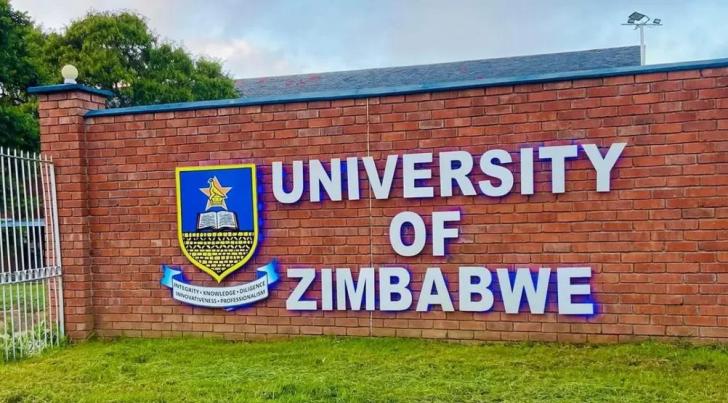News / National
UZ crisis deepens amid strike
18 May 2025 at 10:55hrs |
0 Views

The University of Zimbabwe (UZ), the country's oldest institution of higher learning, is reeling under a deepening crisis as a month-long strike by lecturers brings academic activity to a standstill.
Students, frustrated by the prolonged absence of teaching staff, successfully petitioned the university to postpone scheduled examinations by a week. The administration conceded, citing mounting pressure and the need to address academic disruptions.
At the core of the impasse is a salary standoff: lecturers are demanding a monthly pay of US$2,500, yet currently earn around US$230 in hard currency and an additional ZiG component worth under US$200. Despite various attempts by the university to force a return to work—including the suspension of union leaders—the majority of lecturers under the Association of University Teachers (AUT) have remained defiant.
With tensions escalating, UZ Vice-Chancellor Professor Paul Mapfumo last week addressed the few lecturers who attended, appealing to their sense of duty.
"Our students depend on us, especially during this challenging time. It is our professional obligation to see them through the end of their academic studies," said Mapfumo.
But AUT dismissed the address as "a ploy to buy time and intimidate staff," saying it would continue boycotting all university activities including teaching, examining, meetings, and research-related tasks.
"We do not participate in anything to do with UZ until our grievances are addressed," AUT declared in a statement.
The standoff has triggered growing unrest among students. Last week, six students were arrested during a flash protest in solidarity with their lecturers, accusing the university of constitutional violations and failing to prioritize academic welfare.
"We are here to learn, but for the past month nothing is happening. They've reduced the University of Zimbabwe to a social club," said Tinashe Mwayera, a resident student. "Our parents borrowed money to pay fees for classes that are not taking place. It's pathetic."
In a controversial move, UZ authorities introduced a logging system to monitor lecturer attendance, a method AUT strongly rejected.
"It's a ridiculous measure," said AUT member Dr. Obvious Vengeyi. "This is not a primary school. Professors conduct research in the field. How can someone researching bilharzia in Chipinge be expected to clock in and out in Harare daily?"
The Zimbabwe National Students Union (ZINASU) has also weighed in, expressing concern over the wide-reaching implications of the strike.
"Final-year students working on dissertations face uncertainty over graduation timelines," said Fanuel Gona, ZINASU's legal and human rights secretary. "Students on industrial attachment are yet to be assessed, and first-years are being denied basic learning opportunities despite paying fees. Those living off-campus continue to pay rent for no academic return."
The lecturer strike also threatens to derail Zimbabwe's 5.0 education model—an ambitious initiative to modernize universities through innovation and industrialization. But demotivated and underpaid lecturers are in no position to champion such reforms, observers say.
With no clear resolution in sight, the impasse at UZ signals deeper structural and financial problems within Zimbabwe's higher education sector—where ambition and reality appear increasingly misaligned.
Students, frustrated by the prolonged absence of teaching staff, successfully petitioned the university to postpone scheduled examinations by a week. The administration conceded, citing mounting pressure and the need to address academic disruptions.
At the core of the impasse is a salary standoff: lecturers are demanding a monthly pay of US$2,500, yet currently earn around US$230 in hard currency and an additional ZiG component worth under US$200. Despite various attempts by the university to force a return to work—including the suspension of union leaders—the majority of lecturers under the Association of University Teachers (AUT) have remained defiant.
With tensions escalating, UZ Vice-Chancellor Professor Paul Mapfumo last week addressed the few lecturers who attended, appealing to their sense of duty.
"Our students depend on us, especially during this challenging time. It is our professional obligation to see them through the end of their academic studies," said Mapfumo.
But AUT dismissed the address as "a ploy to buy time and intimidate staff," saying it would continue boycotting all university activities including teaching, examining, meetings, and research-related tasks.
"We do not participate in anything to do with UZ until our grievances are addressed," AUT declared in a statement.
"We are here to learn, but for the past month nothing is happening. They've reduced the University of Zimbabwe to a social club," said Tinashe Mwayera, a resident student. "Our parents borrowed money to pay fees for classes that are not taking place. It's pathetic."
In a controversial move, UZ authorities introduced a logging system to monitor lecturer attendance, a method AUT strongly rejected.
"It's a ridiculous measure," said AUT member Dr. Obvious Vengeyi. "This is not a primary school. Professors conduct research in the field. How can someone researching bilharzia in Chipinge be expected to clock in and out in Harare daily?"
The Zimbabwe National Students Union (ZINASU) has also weighed in, expressing concern over the wide-reaching implications of the strike.
"Final-year students working on dissertations face uncertainty over graduation timelines," said Fanuel Gona, ZINASU's legal and human rights secretary. "Students on industrial attachment are yet to be assessed, and first-years are being denied basic learning opportunities despite paying fees. Those living off-campus continue to pay rent for no academic return."
The lecturer strike also threatens to derail Zimbabwe's 5.0 education model—an ambitious initiative to modernize universities through innovation and industrialization. But demotivated and underpaid lecturers are in no position to champion such reforms, observers say.
With no clear resolution in sight, the impasse at UZ signals deeper structural and financial problems within Zimbabwe's higher education sector—where ambition and reality appear increasingly misaligned.
Source - the standard
Join the discussion
Loading comments…
































